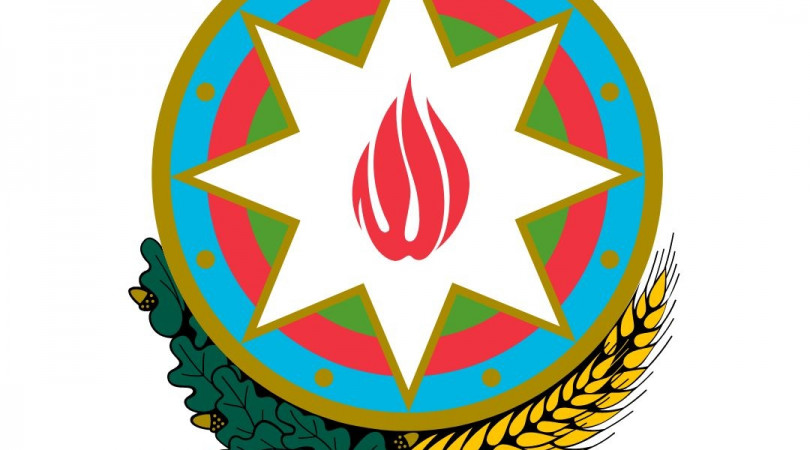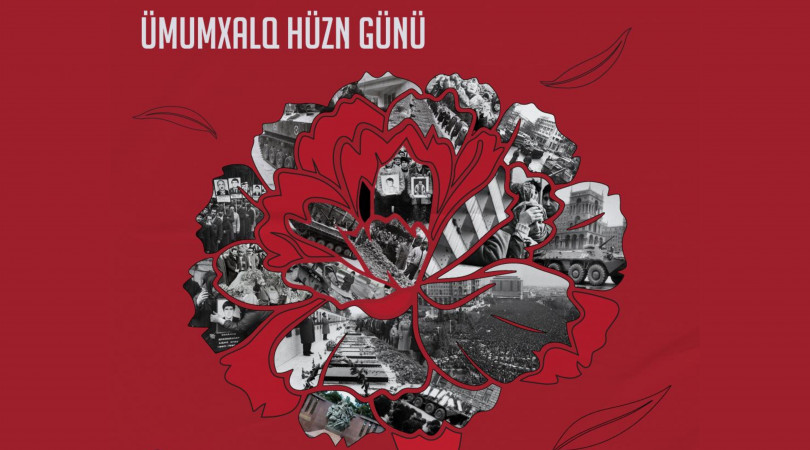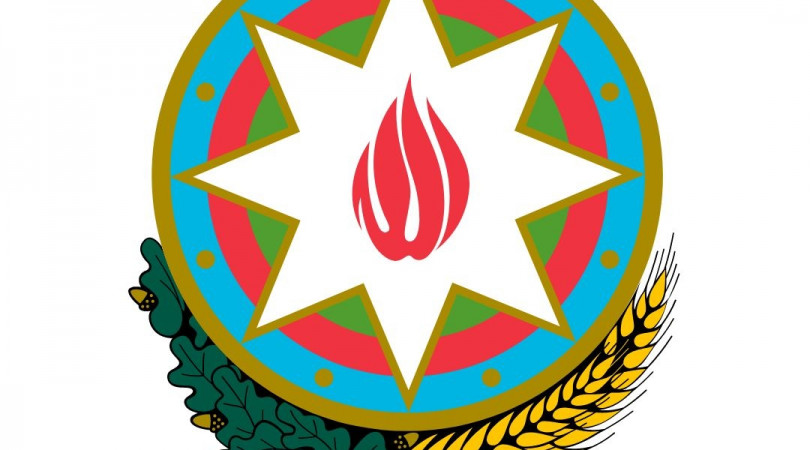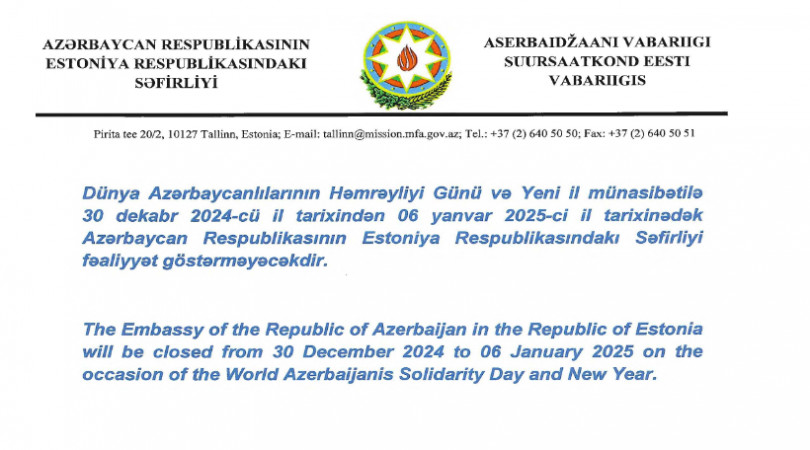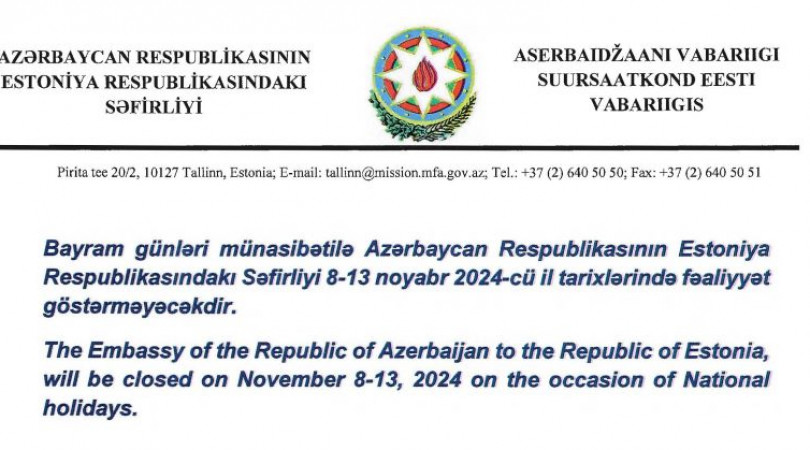Commentary of the Press Service Department of the Ministry of Foreign Affairs of the Republic of Azerbaijan on the Joint Statement by the EP Delegation for relations with the South Caucasus
The joint statement of the members of the European Parliament (EP), Chair of the Delegation for relations with the South Caucasus, MEP Marina Kaljurand, the European Parliament’s Standing Rapporteur on Armenia, MEP Andrey Kovatchev, and the European Parliament’s Standing Reporter on Azerbaijan, MEP Zeljana Zovko on "the need to resume negotiations on the settlement of the Nagorno-Karabakh conflict" shows that the members of the European Parliament are still not fully aware of the current situation in the region, despite the fact that they generally speak from the position of ensuring peace and tranquility in the region based on the fundamental principles of international law.
First of all, we would like to draw the attention of the members of the European Parliament to the fact that the Armenia-Azerbaijan conflict, which the European Parliament for many years has been calling for in its resolutions to be resolved on the basis of the principles of international law, as well as UN Security Council resolutions, has been ended, Azerbaijan has ensured its territorial integrity and the implementation of the relevant UN Security Council resolutions of 1993 alone. In other words, Azerbaijan has been guided by the principles of the inviolability of borders and the territorial integrity of the states of the Helsinki Final Act, to which members of the European Parliament refer and which constitutes the basis of interstate relations.
With the trilateral statement signed on November 10, 2020, a new reality has emerged in the region. It is commendable that members of the European Parliament noted that the trilateral statement ensured stability in the region. Because at this stage, in order to ensure peace and security in the region, as well as to build trust between the sides, it is important to implement the trilateral agreement of November 10 and take appropriate steps in this direction.
The Azerbaijani side, in its turn, is taking all necessary steps to implement the statement, including the settlement of the humanitarian issues, but the commitment of the Armenian side to this statement which it has signed, raises questions. It would be good if the members of the European Parliament would ask the Armenian side why they sent a group of saboteurs to the territory of Azerbaijan almost 20 days after signing a joint statement on the cessation of hostilities. Possibly, then the members of the European Parliament would have understood that the mentioned Armenian servicemen were not prisoners of war, but members of a terrorist sabotage group sent to the territories of Azerbaijan purposefully after the ceasefire was declared. In general, the sending of military personnel by Armenia to the territory for the purpose of committing terrorist acts after the announcement of a ceasefire, clearly demonstrates disrespect of Armenia for the fundamental principles of the Eastern Partnership, to which this country is a member, and for European values in general.
As for the cultural heritage, the members of the European Parliament should be well aware that as a result of decades of illegal activities by the Armenian side in the occupied territories of Azerbaijan, almost all historical, cultural and religious heritage has been destroyed, the activities equal to war crimes related to the destruction, plunder, changing of the origin of these monuments, were carried out. Although this issue has been raised by Azerbaijan on international platforms, including during our contacts with the EU institutions, it is unfortunate that the members of the European Parliament have not yet made a single statement on this issue. We would like to bring to the attention of the members of the European Parliament that all the monuments in Karabakh belong to the historical, cultural and religious heritage of the Azerbaijani people. Azerbaijan is a multicultural country and all monuments on its territory are protected at the state level. The protection of the rich heritage of our country will continue to be ensured at a high level, as well as the restoration, maintenance and reconstruction of monuments in the liberated territories will be implemented.

